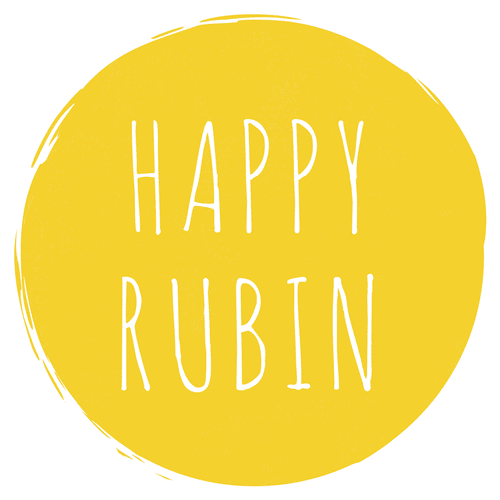![How To Deal With Sensory Overload [9 Tips For Overstimulation]](https://happyrubin.com/wp-content/uploads/2019/12/ik-ben-overprikkeld-150x150.jpg)
Best Books On Quantum Physics [Quantum Theory Top 10] [2025 Update]
![Best Books On Quantum Physics [Quantum Theory Top 10] [2025 Update]](https://happyrubin.com/wp-content/uploads/2019/11/boeken-over-kwantumtheorie-1280x640.jpg)
What are the best books on quantum physics? Here you will find a list of recommendations to discover more about this special topic. Read along…
Contents of this page:
The top 10 best books about quantum physics
Criteria for compiling these recommended books
Our editors have carefully read as many as possible books about this subject. Then, they used the following criteria for choosing the best picks:
⠀
- The literary quality of the books.
- The amount of books sold worldwide.
- The professional reviews in newspapers.
- The expertise and experience from the author.
- The quality of the examples, knowledge and practicality
- The actuality and whether the information is useful or too old.
- Our editor’s opinions: they have read and judged the books extensively.
Full disclosure: as Amazon Associates we earn from qualifying purchases.
1.Something Deeply Hidden: Quantum Worlds and the Emergence of Spacetime
As you listen to these words, copies of you are being created. Sean Carroll, theoretical physicist and one of this world’s most celebrated writers on science, rewrites the history of 20th-century physics. In our opinion, Something Deeply Hidden shows that facing up to the essential puzzle of quantum mechanics utterly transforms how we think about space and time.
2.The Elegant Universe: Superstrings, Hidden Dimensions, and the Quest for the Ultimate Theory
Brian Greene reveals a universe that consists of eleven dimensions, where the fabric of space tears and repairs itself, and all matter is generated by the vibrations of microscopically tiny loops of energy. According to us The Elegant Universe makes the most sophisticated concepts ever contemplated accessible, bringing us closer than ever to understanding how the universe works.
3.Quantum: Einstein, Bohr, and the Great Debate about the Nature of Reality
Both Einstein and Bohr are well-known for their thoughts about the nature of reality. We chose this one in our top 10, because it compares their thoughts in an interesting way. It forms the basis of the debate that was central on this topic during the twentieth century.
4.My First Book of Quantum Physics (My First Book of Science)
Today almost all of us know that everything around us is build out of particles. Regardless, whether it concerns water, the air we breathe, the food we eat or the buildings we build. We think that this book is a useful guide to help you to understand more about quantum physics.
5.Quantum Physics and the Power of the Mind: Discover all the important features of Quantum Physics and the Law of Attraction, find out how it really works to change your life for the better
Quantum physics is an integral part of our lives and it is extremely important for us to have at least the basic knowledge on the subject. Most people struggle with it as there are scarcely any books on the topic. We consider Quantum Physics and the Power of the Mind as a simple guide to understand the concepts.
6.The Big Picture: On the Origins of Life, Meaning, and the Universe Itself
If you wonder about the big picture, we recommend reading this book. It explains in great detail the origins of life. In addition, it sets out how everything is connected. In other words, if you really want to grasp the world behind quantum physics, this book is the right choice.
7.Quantum Physics for Beginners: The Most Compelling Phenomena of Quantum Physics Made Easy: The Law of Attraction and the Theory of Relativity
To some people the concept of quantum physics might seem incomprehensible. This book is our pick because it explains what this concept actually entails. Once you have read this book, including the theory of relativity and the law of attraction, you will understand what it is all about.
8.Baby University Board Book Set: A Science for Toddlers Board Book Set (Science Gifts for Kids) (Baby University Board Book Sets)
This book is absolutely perfect if you set out to raise a future genius. It contains clear instructions for toddlers to learn all there is to know about scientific concepts. To make it appealing for them, the book includes colorful pictures and images that are also much appreciated by grownups.
9.The Illustrated Brief History of Time, Updated and Expanded Edition
We chose this one in our top 10 because in the years since its publication in 1988, it has established itself as a landmark volume in scientific writing. Since 1988 there have been extraordinary advances in the technology of macrocosmic worlds. These observations have confirmed many of Stephen Hawking’s theoretical predictions in the first edition of his book.
10.The Physics Book: Big Ideas Simply Explained
Do you want to know more about the scientific concepts that influence our daily lives? This book is in our top 10 because it describes these concepts in detail. You will read about the history and how the developments, such as quantum physics, are still visible in today’s life.
Quantum theory is fascinating …
Quantum theory has been around in one form or another for over a century. Still, the subject still manages to fascinate physicists and non-specialists alike. If only because you were fascinated by philosophers like Alan Watts who talked about it, realistic science fiction like Interstellar or humorous science fiction like Rick & Morty …
What makes quantum theory so interesting? Probably the mystery of it. Some of the central tenets of the subject seem bizarrely against common sense.
- Particles that can pass through walls …
- Schrödinger’s experiment on cats that are half-dead and half-alive at the same time, because you don’t see it until you look at the cat …
- Small pieces of matter that are separated from each other by light years and yet still have some ‘ghostly’ entanglement with each other…
Yet quantum theory remains the most accurate scientific theory in the history of the Universe, with some theoretical calculations measured accurately to 13 decimal places.
Extra recommendations: let’s go to the bonus quantum physics book list …
Together these books introduce some of the most interesting and consistent ideas of modern physics. For many, the allure of the subject stems from the great intellectual search for the background of all human history.
1 – How to Teach Quantum Physics to Your Dog
If physicist Chad Orzel’s dog, Emmy, can understand the core of the uncertainty principle, Bell’s theorem, Heisenberg’s work, and even quantum teleportation, then so can you. Orzel has a knack for useful analogies.
Don’t be fooled by the title. This book is clearly written for people – and it contains a lot of knowledge. However, the pedagogical explanation is interrupted by dialogues between the writer Chad Orzel and his dog Emmy. These dialogues are very insightful, as Emmy seems to ask all the questions a human would have. Well, almost anyway.
The dialogues do have some dog-related humor, such as the question of whether it’s possible to make a quantum tunnel through the fence to chase the squirrels on the other side. The humor in these dialogues makes reading a pleasure.
2 – Quantum Mechanics: The Theoretical Minimum
This book was written by Leonard Susskind and Art Friedman. The intention of this book is to make quantum mechanics “as simple as possible, but not simpler”. Don’t you shy away from formulas? Then this book is for you.
The book is easy to read. This makes it possible to read the roughly 350 pages in a weekend, which is a big plus for the book. Simple exercises will help you keep a little structure with the information in the book.
Best of all, this book covers many of the latest ideas and developments and delivers an accessible story that is as compelling as the classics.
3 – The Feynman Lectures on Physics, boxed set
Feynman developed these lectures half a century ago in the 1960s; they are still among the most acclaimed introductions to the topic. With his famous clear exposition, Feynman lures readers to the quantum world: matter that behaves (in a sense) like waves; the role of probability; the implications of the uncertainty principle.
The book is fantastic at explaining the basics of quantum physics. It starts with thought experiments – which can be carried out directly – about the interaction of light or atoms with a double slit. It discusses particle-wave duality in an easy-to-follow manner and explains Heisenberg’s uncertainty principle early on.
The book explains the main principles of quantum mechanics and discusses Schrödinger equation, probability calculations, time dependence, the hydrogen atom and its hyperfine fission and angular momentum, among others.
It’s not the most popular book – the later chapters of the book delve more into quantitative calculations – but this classic introduction rewards disciplined and curious readers.
4 – Schrödinger: Life and Thought
The two “chief inventors” of quantum mechanics, Werner Heisenberg and Erwin Schrödinger, have published many of their studies. Heisenberg’s physics was brash and brutal, while Schrödinger endeavored to graft quantum theory onto the well-known workings of classical physics.
But in their personal lives, their roles were reversed: Schrödinger was much more adventurous, even bohemian. Walter Moore’s deeply researched biography shows how much Schrödinger’s scientific endeavors were intertwined with his then shocking personal life.
5 – The Elegant Universe – Superstrings, Hidden Dimensions, and the Quest for the Ultimate Theory
With a rare blend of scientific integrity and literary flair, the author takes us on a journey into the quest for the ultimate theory of the universe – the quest to unite all natural laws. Greene knows how to present complex material in a lively, engaging way.
This worldwide bestseller is highly recommended for anyone who has ever looked to heaven and, like Einstein, wondered if God had a choice to make the universe.
6 – Reality Is Not What It Seems – The Journey to Quantum Gravity
This book has received fantastic reviews worldwide. It can really change the way you see the world and make you fall in love with physics again, even if it kept failing you in school.
Carlo Rovelli is a physicist, so of course this book is about physics. But it is much more than that. It is not so much a scientific treatise, but a hymn to the wonder of the natural world …. Rovelli writes with crystalline simplicity and turns quantum physics into a coherent story.
7 – The hidden reality – parallel universes and the deep laws of the cosmos
In this book, Brian Greene – known from his quantum theory books at the highest science journalism level – describes the speculative ideas of parallel universes: worlds that could co-exist, perhaps infinitely. A tough challenge for the author, and he succeeds well.
8 – The unraveling of the cosmos – about the search for the theory of everything
Modern physics, from relativity theory and quantum mechanics to recent interpretations of superstring theory, is made comprehensible to a layman.
9 – The Age Of Entanglement – When Quantum Physics Was Reborn
Some of the most provocative features of quantum theory have emerged much more recently. The notion of quantum entanglement – what Einstein called “spooky action at a distance” – only came into its own in the past 50 years.
The author of this book creatively portrays the newer material with a series of portraits based on published writings of physicists, unpublished correspondence and interviews. In her report she mixes the writing of popular science writings with historical detective work and narrative flair.
10 – Quantum Reality: Beyond the New Physics
This is one of the first popular books to address quantum entanglement. This clear and witty report from 1987 does not shy away from the philosophical angle. Using thought experiments and accessible descriptions of real experiments, Herbert examines how various conflicting interpretations try to explain an underlying reality.
On your luck!

![5 Best Self Care Tips For College Students [#1 Advice]](https://happyrubin.com/wp-content/uploads/2021/09/the-best-self-care-tips-for-college-students-440x264.jpg)
![How To Stick To New Year’s Resolutions: 9 Tips [Smart & Sure Ways]](https://happyrubin.com/wp-content/uploads/2019/12/tips-voor-goede-voornemens-440x264.jpg)
![How To Stop Being So Hard On Yourself [9 Great Tips]](https://happyrubin.com/wp-content/uploads/2019/12/we-moeten-zoveel-van-onszelf-en-anderen-150x150.jpg)

![19 Best Ice Breaker & Get-To-Know-Eachother Games [Fun & Simple]](https://happyrubin.com/wp-content/uploads/2018/02/leukste-ijsbrekers.jpeg)
![Becoming More Social: 41 Tips [Improving Social Skills] [List]](https://happyrubin.com/wp-content/uploads/2018/06/sociale-vaardigheden1.jpeg)
![How to start a conversation with anyone: 15 tips [Making contact]](https://happyrubin.com/wp-content/uploads/2017/08/gesprekstechnieken1.jpeg)
![372 Friend Tag Q&A Questions [Best Friend Quiz]](https://happyrubin.com/wp-content/uploads/2019/05/best-friend-tag-vragen-voorbeelden.jpg)



![Clingy & controlling behavior of partner/date [Extreme examples]](https://happyrubin.com/wp-content/uploads/2020/06/claimerig-gedrag-van-partner-eigenschappen-en-voorbeelden-150x150.jpg)

![How to recognize if a man is in love [Signals & his body language]](https://happyrubin.com/wp-content/uploads/2020/05/verliefd-gedrag-van-mannen-herkennen-150x150.jpg)


![Free will and religion / theology [Verses & Quotes on free will]](https://happyrubin.com/wp-content/uploads/2020/10/religion-on-free-will-quotes-1050x640-1-150x150.jpg)

![Dealing With Setbacks & Hardship [Lessons & Examples]](https://happyrubin.com/wp-content/uploads/2018/11/omgaan-met-tegenslag-tips-hoe-dan.jpeg)
![NLP Agreement Frame: Use these exact sentences [Examples]](https://happyrubin.com/wp-content/uploads/2020/10/agreement-frame-nlp-1125x640-1-440x264.jpeg)
![122 Best Comebacks In Any Situation [Best Examples]](https://happyrubin.com/wp-content/uploads/2020/06/beste-comebacks-technieken-tips-440x264.jpg)
![Using Hypnosis to Stop Smoking [HowTo]](https://happyrubin.com/wp-content/uploads/2020/05/stoppen-met-roken-door-hypnose-150x150.jpg)
![Presuppositions language pattern: meaning & examples [NLP]](https://happyrubin.com/wp-content/uploads/2020/04/wat-zijn-vooronderstellingen-150x150.jpg)
![Peripheral Vision: Meaning & Exercise [Essential Skill]](https://happyrubin.com/wp-content/uploads/2020/04/perifeer-zicht-trainen-tips-150x150.jpg)

![How To Start A Coaching Business [21 Smart Tips]](https://happyrubin.com/wp-content/uploads/2018/11/coachingpraktijk-starten-tips.jpeg)
![How to make dreams come true? [33 tips to realize dreams 100%]](https://happyrubin.com/wp-content/uploads/2018/05/dromen-mijlpalen.jpeg)
![How To Become Rich? 27 Millionaire Tips [Guaranteed To Work]](https://happyrubin.com/wp-content/uploads/2018/01/hoe-kan-ik-rijk-worden.jpeg)
![77 Best Online Marketing Tools [Recommendations] [Also Free]](https://happyrubin.com/wp-content/uploads/2018/08/beste-onlne-marketing-tools-tips.jpeg)
![Complete List Of Virtues & Qualities [Including Explanation]](https://happyrubin.com/wp-content/uploads/2018/12/kernkwaliteiten-uitleg.jpeg)
![Being Attentive: How Do You Do That? [Meaning & 9 Tips]](https://happyrubin.com/wp-content/uploads/2019/05/attent-zijn.jpg)
![Being Conscientious: Meaning Of This Virtue [Explained]](https://happyrubin.com/wp-content/uploads/2018/07/Consciëntieus-persoon.jpg)


![Best Books About Burn-Out [Top 10] [Update 2025]](https://happyrubin.com/wp-content/uploads/2020/06/beste-boeken-over-burnout-lijst-440x264.jpg)
![Best Self-love Books [Top 10] [Update 2025]](https://happyrubin.com/wp-content/uploads/2020/04/beste-boeken-over-zelfliefde-aanraders-440x264.jpg)
![Life changing books: 10 books that change your life [2025 Update]](https://happyrubin.com/wp-content/uploads/2020/03/levensveranderende-boeken-tips-150x150.jpg)
![Top 10 Best Books: Recommendations Per Genre [2025 Update]](https://happyrubin.com/wp-content/uploads/2019/12/best-books-per-genre-150x150.png)
![Best Books On procrastination: Must Reads [List] [2025 Update]](https://happyrubin.com/wp-content/uploads/2019/11/beste-boeken-over-uitstelgedrag-tips-150x150.jpg)
![Joe Dispenza: Events To Attend [2025 & 2026] [All Info]](https://happyrubin.com/wp-content/uploads/2020/02/joe-dispenxa-events-440x264.png)
![Best Online Study Options [Online Education Top List]](https://happyrubin.com/wp-content/uploads/2019/03/best-home-study-options-440x264.png)
![Teachable Review & Experiences 2025 [Bad Online Training Tool?]](https://happyrubin.com/wp-content/uploads/2020/02/Teachable-review-ervaringen-150x150.png)
![Audible Review, Experiences & Special Discount [Scam?]](https://happyrubin.com/wp-content/uploads/2020/01/audible-review-ervaringen-150x150.png)
![Guest Posts Wanted [Free & Always Directly Accepted]](https://happyrubin.com/wp-content/uploads/2019/05/gastbloggen-regels.jpg)